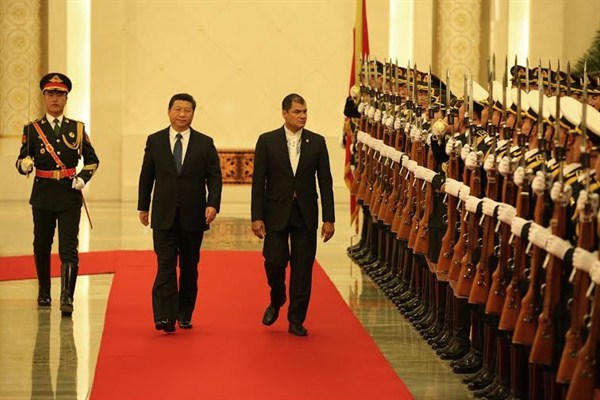Earlier this month Venezuela and Ecuador received major boosts from China, which has redoubled its stake in the two Latin American economies most vulnerable to plunging oil prices. Following recent visits to China by financial chiefs from both countries, Venezuelan President Nicolas Maduro and his Ecuadorian counterpart, Rafael Correa, each traveled to Beijing in early January, where China held its first annual ministerial meeting with the Community of Latin America and Caribbean States (CELAC). Correa returned from the visit with approximately $5.3 billion in new financing from the Export-Import Bank of China; Maduro announced that Venezuela would receive an additional $20 billion in Chinese investments.
Beijing has rapidly established itself as an indispensable economic partner for Caracas and Quito. Chinese banks have pledged more than $50 billion in financing for Venezuela and nearly $10 billion to Ecuador since 2005, as China’s trade with Latin America has swelled. Maduro and Correa’s visits to Beijing are the latest in a string of high-level exchanges between their administrations and Chinese officials over the past decade.
Chinese support comes at a particularly critical time for both governments, which face mounting economic and political challenges in 2015. Oil revenues have fueled politically popular social programs since the 2000s in Ecuador and Venezuela, where the energy sector is estimated to account for roughly 35 percent and 45 percent of government revenues, respectively. But tumbling oil prices have sent both regimes scrambling for cash. Correa’s administration has already sought to trim its 2015 budget by between $1 billion and $1.5 billion. Poor economic management in Venezuela has generated growing deficits, spiraling inflation and shortages of basic goods. Neither government has easy access to financing from global markets.

